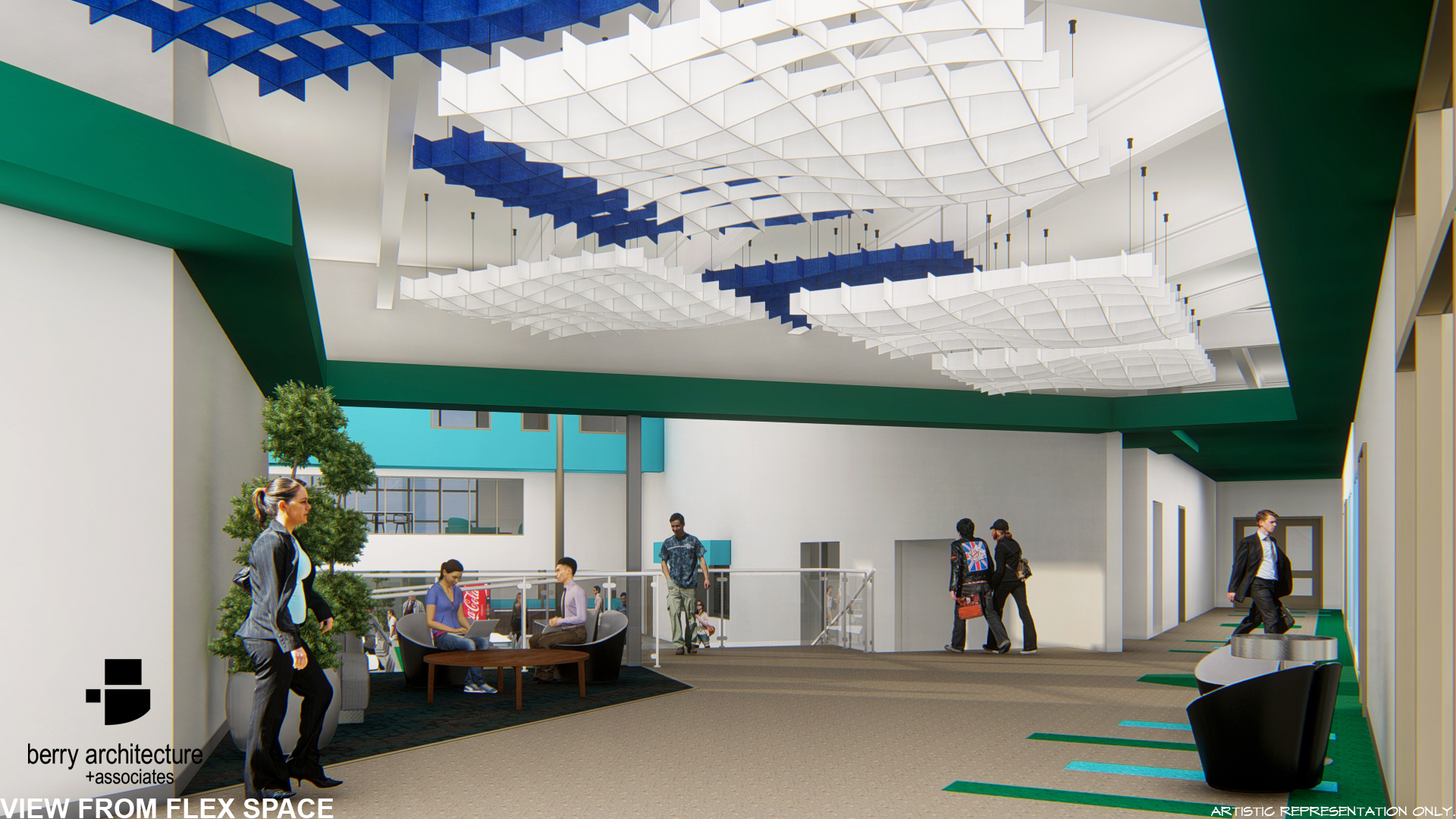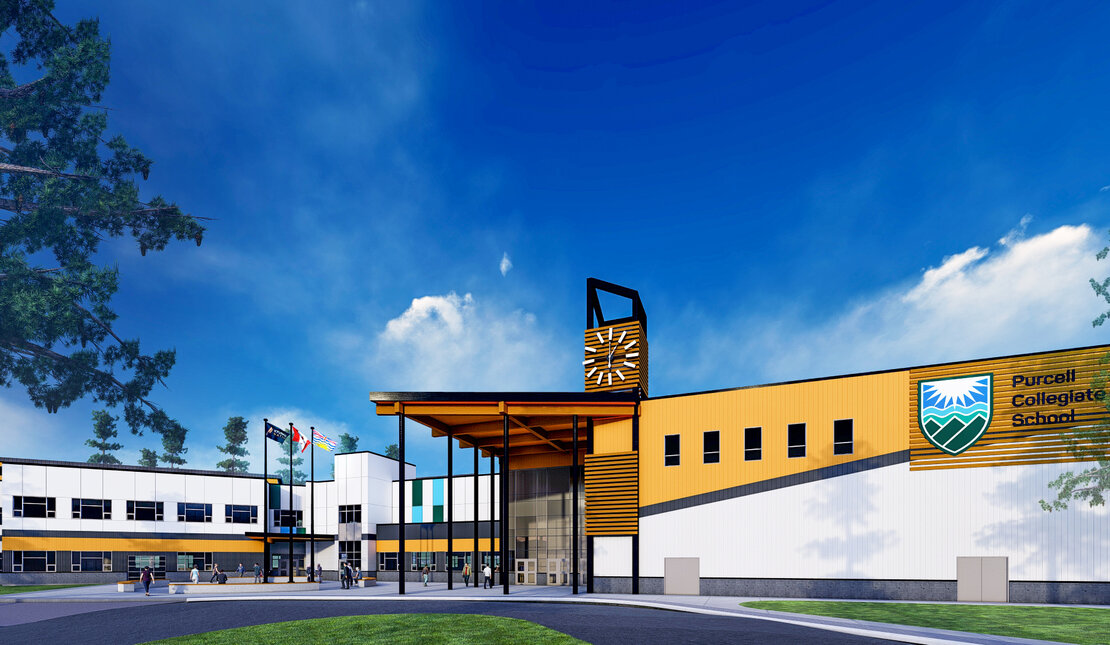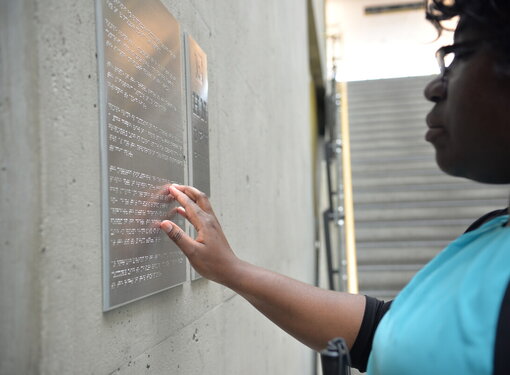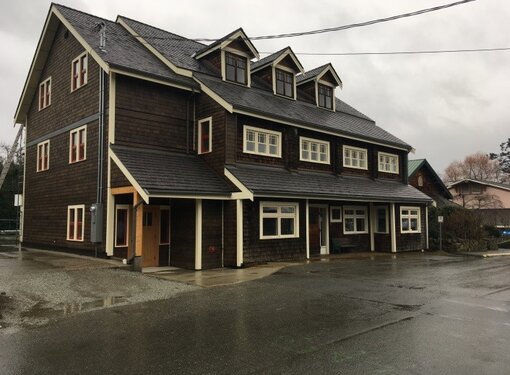Accessibility: A key focus for new boarding school in Kimberley, B.C.
Perched on a bluff among the Purcell and Rocky Mountain ranges in Kimberley, British Columbia, the site of Purcell Collegiate School (PCS) sits, awaiting the moment it can open its doors to students from all over the world.
Purcell Collegiate is a boarding school that will invite both Canadian and international students in Grades 7 – 12 to learn not just academic courses, but elective classes in sustainability, outdoor education, STEM, business and entrepreneurship, leadership, and fine arts. There will also be advanced coaching and training opportunities for student athletes.
One of the features of the school that makes it so unique is its focus on accessibility and ensuring everyone has the opportunity to study at the school. Purcell Collegiate is targeting Rick Hansen Foundation (RHF) Accessibility Certified Gold to ensure the entire campus is as accessible as possible.

Accessible Design with an Inclusion Lens
For Duncan MacLeod, CEO and Head of School of PCS, this was a very important factor.
In his previous work in international education, MacLeod had been aware of students who wanted to study abroad in Canada, but had difficulty finding programs that could accommodate students with disabilities. He remarked that providing options for these students was difficult, especially if they were to be residing in a homestay – the challenge arises to find a host family with an accessible home, and having contingencies if something was to fall through or not be the right fit.
This was a challenge that MacLeod wanted to meet head on– ensuring students with disabilities can study abroad in Canada.
Kimberley is the perfect place for a facility such as PCS because of its history with accessibility and sport. Kimberley Alpine Resort is home to the Paralympic Training Centre. In addition, the municipality is designated by The Athlete Training Centre, a world-class training centre based in Ontario, as the only place in North America where athletes with disabilities can train for all winter disciplines, including, Nordic Skiing, Wheelchair Curling, Sledge Hockey, and Alpine Skiing.
MacLeod was born and raised in Kimberley, and as such, accessibility features have always been a part of his experience. He remarked that the community itself was relatively ahead of the curve on accessibility inputs, such as graded curbs. To him, being accessible is part of what makes a community welcoming and open. Something he brought to the initial discussions for PCS.

Collaboration with Architects and the Rick Hansen Foundation
MacLeod was pleased to say right from the start, they were on the same page with the architectural team.
George Berry, architect and CEO of Berry Architecture + Associates, remarked that accessibility has been a part of the firms mandate for 23 years. Berry’s father had Polio, so Berry saw first hand some of the accessibility challenges he faced – something that continues to inspire and inform his work.
“We believe any human being should be permitted to go into any building without obstacles,” Berry said. “A built object should never restrict mobility.”
This is when the team reached out to the Rick Hansen Foundation. MacLeod said that working with RHF was the missing piece of the puzzle and really helped expand what was possible in terms of accessibility.
“Working with RHF has been very educational. They helped us push our accessibility knowledge over the line,” Berry said of the relationship with RHF.
Key Accessibility Features and Adaptive Technology
Some of the accessibility features integrated into the design of the school include hallways wide enough for students with wheelchairs, accessible suites in the boarding houses, wayfinding, including braille in both English and Ktunaxa language, hearing loops for enhanced communication on the entire campus, and accessible outdoor learning spaces. A green roof area of the school will also be accessible to those with mobility challenges.
Berry explained that a lot of research over the years has gone into finding very specialized equipment to aid in accessibility. For example, many individuals with mobility disabilities can find getting in and out of chairs difficult, something Berry’s father found challenging, so the team sourced classroom chairs designed with handles for those who need the support.

The team behind PCS wants it to be a “completely enabling environment for everybody” and MacLeod said that it is one of the most important, affirming and uplifting parts of the entire project. In addition to ensuring the school is accessible to all students, staff and visitors, they are also targeting LEED® Gold for sustainability and learning experiences will be guided and facilitated by the ʔaq̓am Community of the Ktunaxa Nation.
MacLeod said fostering an educational opportunity like PCS has been rewarding and inspiring for him. Between his experience growing up in Kimberley and his career in international education, creating a school “that is going to be able to say “yes” when a student with a disability inquires about coming to Canada to study” supports the realization of PCS as a lighthouse project that is accessible, inclusive, and empowering.







